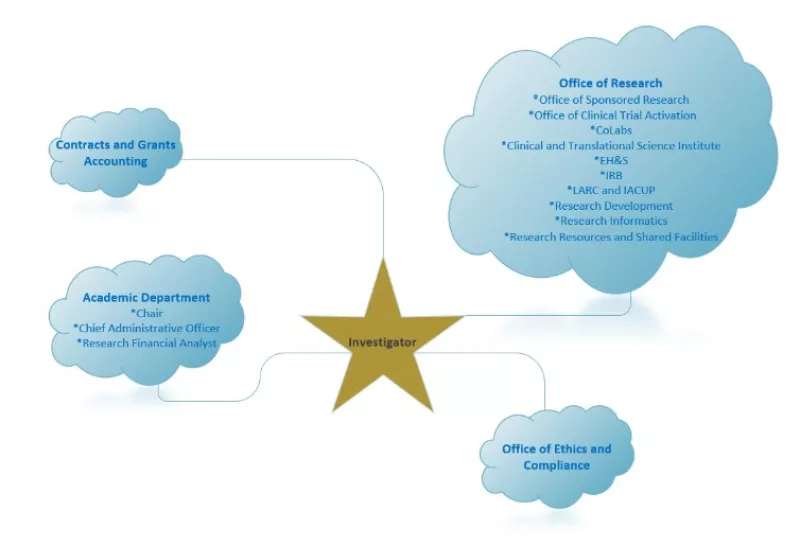Research is a cornerstone of academic medicine, and proper stewardship and reporting of awarded dollars are as important as the act of scientific discovery itself. Where does one start? This depends on the type of appointment you have with UCSF or with BCH Oakland. Eligibility to submit proposals for extramurally sponsored funding and to become a principal investigator (PI) at UCSF is based on academic status or through an exceptional waiver.
For more information about each step in the process, please go to Project Life Cycle | Office of Sponsored Research (ucsf.edu)
There is an entire organization at UCSF dedicated to helping principal investigators submit proposals and then manage and closeout the awards, including providing access to necessary external systems required by the sponsors. Since UCSF is now the contracting agency for all UCSF faculty conducting research at Oakland, UCSF's OSR is the point of contact for gaining access to all sponsor portals (e.g., HRSA Electronic Handbook, ERACommons, etc.).
PIs at UCSF should never feel they need to navigate the complex system of contracts and grants by themselves. Access the Pre-Award and Post-Award submenus below for information about how to get started.


